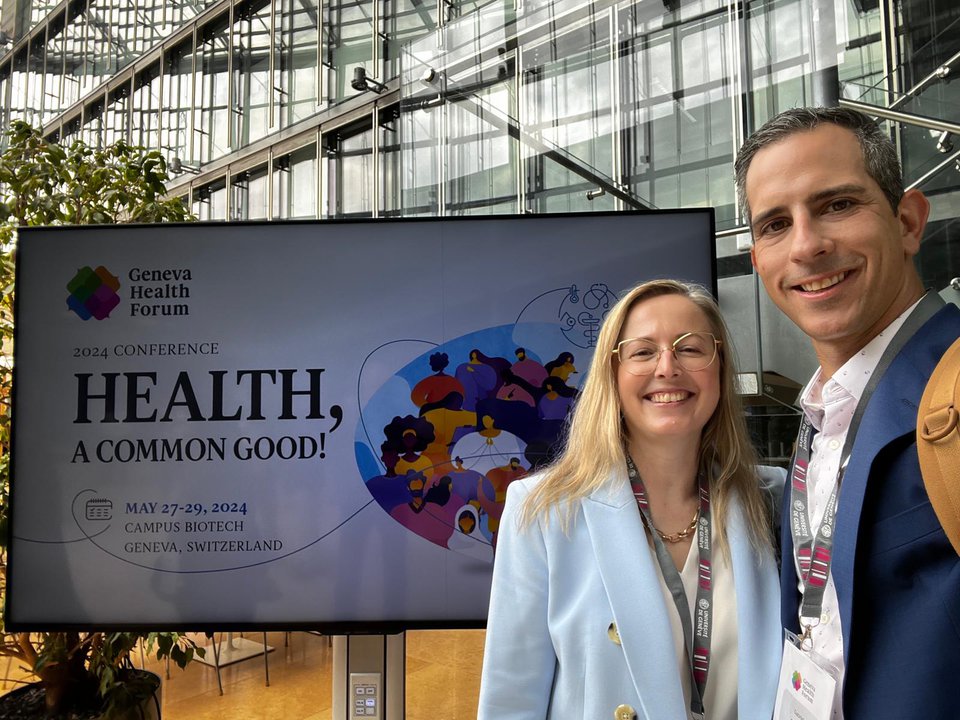There’s an innovative new initiative launched by two Alberta doctors garnering attention worldwide. Focused on refugee health, the Canadian Refugee Healthcare System Atlas was the brainchild of Dr. Annalee Coakley and Dr. Gabriel Fabreau co-directors of Refugee Health YYC at the University of Calgary's O'Brien Institute for Public Health.
“The Refugee Healthcare Atlas is a tool that’s to be used by clinicians, by patients themselves, by policy makers and academics,” explains Dr. Coakley. “This tool brings together all the information across Canada on the refugee health system. It includes the refugee health clinics and public health clinics from across Canada that help manage the health care of refugees, as well as resettlement agencies that help resettle refugees.”
The Syrian refugee initiative was the big impetus according to Dr. Fabreau. “There was a mass number of Syrians that were welcomed across the entire country and it was quite chaotic.” One of Dr. Fabreau’s ongoing concerns is that forced displacement continues to rise globally, now estimated to be over 117 million people. “To prepare for that,” he says, “we wanted to build out a tool that could prepare health systems and the understanding of them.”

Dr. Coakley explains that often healthcare providers for refugees in hospitals didn’t understand how to access follow-up for patients. “This tool is really designed to provide those clinicians with a map in their local area in terms of who the refugee health providers are, who the refugee resettlement agencies are and their contact information so they could ensure continuity of care and good transitions of care.”
For example, refugees might first arrive in Calgary and then move elsewhere in Canada, like Vancouver or Toronto. Through the Atlas, refugee health providers can easily identify what other refugee health providers are available in the city that their patient is moving to, which ensures there is continuity of care for people.
The Atlas is also a multilingual tool that currently includes translations in English, French, Dari, Ukrainian and Arabic. It is now expanding translations into 10 additional languages, explains Dr. Fabreau. “Language in health care, for any kind of tool, is often the number one barrier for newcomers and newcomer communities,” he says. “So we hope by doing that and building out a platform that’s more customized for refugees and refugee communities, the more useful it will be for people to navigate the health system.”
The Atlas has caught the attention of the World Health Organization and the UN Refugee Agency (UNHCR). Dr. Fabreau says they are now collaborating and working towards understanding the impacts of forced displacement on health systems in other places around the world.
Dr. Coakley adds the Atlas is also a tool that improves health care efficiency. “It has all of the information in one place so that patients can navigate the system themselves and go to the right provider at the right time. It can minimize visits to acute care for example. Also it improves transitions of care.”
Dr. Coakley says if patients move across provincial borders, the Atlas can link them to the refugee health provider and resettlement agency in their destination city, which prevents duplication of tests and thereby helps with overall efficiency and cost savings. Dr. Fabreau adds they hope the tool can improve efficiencies by helping with coordination between public health, primary care and settlement.
Analytics is another important feature. Dr. Coakley says the Atlas provides customized reports for each clinic, which can summarize the number of refugees in their jurisdiction and how their clinic compares to national averages. These advanced analytics can help with all kinds of planning, benchmarking and quality improvements for refugee health care.
“Like all things in the health care system, the better we can coordinate and communicate across silos, the more efficient the care is for our patients,” Dr. Fabreau says. “One of our main goals now, in the next 3-6 months, is we’re really trying to get as much feedback as possible from clinics, settlement organizations, health care organizations and refugee communities on what else they would want to see in this tool.”
To learn more about refugee health and the Atlas visit the website.
Banner image: Dr. Annalee Coakley and Dr. Gabriel Fabreau at the Global Health Forum conference in Geneva
